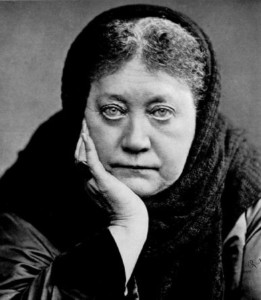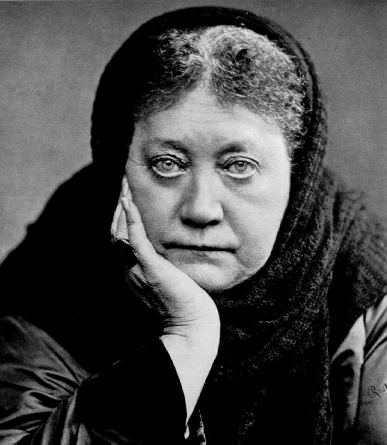
Helena Petrovna Blavatsky
The present earth-life is a fall and punishment. The soul dwells in “the grave which we call the body,” and in its incorporate state, and previous to the discipline of education; the noetic or spiritual element is “asleep.” Life is thus a dream rather than a reality. Like the captives in the subterranean cave, described in the Republic, the back is turned to the light, we perceive only the shadows of objects, and think them the actual realities.
Is not this the idea Maya, or the illusion of the senses in physical life, which is so marked a feature in Buddhistical philosophy? But these shadows, if we have not given ourselves up absolutely to the sensuous nature, arouse in us the reminiscence of that higher world that we once inhabited. “The interior spirit has some dim and shadowy recollection of its antenatal state of bliss, and some instinctive and proleptic yearnings for its return.”
It is the province of the discipline of philosophy to disenthrall it from the bondage of sense, and raise it into the empyrean of pure thought, to the vision of eternal truth, goodness, and beauty. “The soul,” says Plato, in the Theoetetus, “cannot come into the form of a man if it has never seen the truth. This is a recollection of those things which our soul formerly saw when journeying with Deity, despising the things which we now say are, and looking up to that which Really is.
Wherefore the nous, or spirit, of the philosopher (or student of the higher truth) alone is furnished with wings; because he, to the best of his ability, keeps these things in mind, of which the contemplation renders even Deity itself divine. By making the right use of these things remembered from the former life, by constantly perfecting himself in the perfect mysteries, a man becomes truly perfect – an initiate into the diviner wisdom.”
Hence we may understand why the sublimer scenes in the Mysteries were always in the night. The life of the interior spirit is the death of the external nature; and the night of the physical world denotes the day of the spiritual. Dionysus, the night-sun, is therefore, worshipped rather than Helios orb of day. In the Mysteries were symbolized the pre-existent condition of the spirit and soul, the lapse of the latter into the earth-life.
Theon, of Smyrna, aptly compares the philosophical discipline to the mystic rites: “Philosophy,” says he, “may be called the initiation into the true arcana, and the instruction in the genuine Mysteries. There are five parts of this initiation: I., the previous purification; II., the admission to participation in the arcane rites; III., the epoptic revelation; IV., the investiture or enthroning; V., The fifth, which is produced from all these, is friendship and interior communion with God.
Excerpted from ‘Isis Unveiled.’ The 187th birth anniversary of Madame Blavatsky will be observed on July 31.







